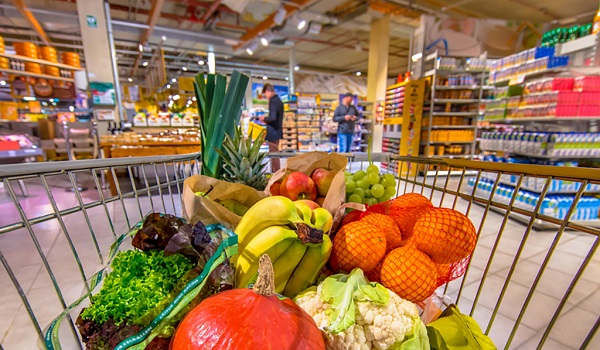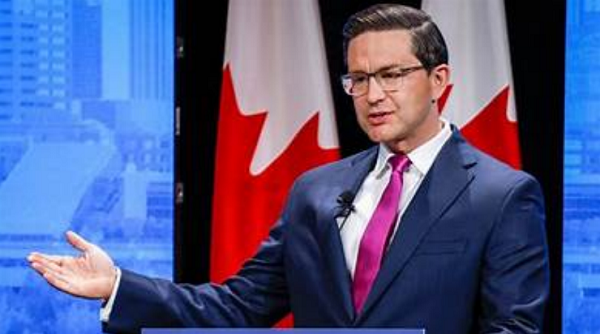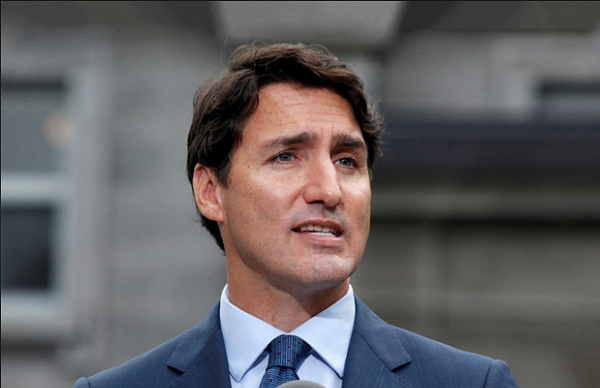Canadian grocery giants unveil new strategy to stabilize food prices
Canada’s grocery giants reveal new plans to stabilize food prices — including expanded price freeze and early holiday discounts
Almost two months ago Canada’s grocery chain giants promised Ottawa they would roll out plans to lower food prices under threat of new taxes.
But for weeks, almost no one would say what those plans were or what they would mean for consumers around the country.
Now, the major chains are starting to reveal plans for steeper discounts on staples and price freezes on thousands of packaged goods. But according to some industry observers, it’s not clear if those moves will make a serious dent in inflation, or whether the big grocers are just benefiting from good timing.
Since the spring, Statistics Canada has been tracking a slowdown in grocery price increases. The latest Consumer Price Index reported grocery prices rose by 5.8 per cent year-over-year in September, down from a 6.9 per cent hike in August and 8.5 per cent in July, and well below the high of 11.4 per cent in January. The CPI report for October will be released on Tuesday.
On Monday, Sobeys’ parent Empire Company Ltd., Canada’s second-largest grocer, told the Star it is freezing prices on thousands of products, mostly in the centre aisles of its stores, until early next year. The price freeze, however, only builds on an existing tradition in the Canadian grocery business, where major retail chains often refuse to accept price increases from suppliers in an attempt to simplify their operations for the holiday sales blitz.
Empire — a network of more than 1,600 stores includes Sobeys, Farm Boy, Longo’s, Safeway, FreshCo, Foodland and IGA — said it has historically frozen prices on 90 per cent of packaged products between November and January. The company is expanding the practice this year to include all packaged products in its stores, which will include about 20,000 items, spokesperson Andrew Walker said.
To make the program happen, Walker said, Empire had to cancel 1,700 price increases that had already been scheduled to go into effect between now and January.
“This is a meaningful step-up from prior years,” Walker said in a statement, adding that Empire is planning more “significant and meaningful” moves for later in the new year. “Empire has taken Minister Champagne’s and Canadian’s concerns seriously and we have done everything possible.”
David Soberman, a marketing professor at the University of Toronto’s Rotman School of Management, said the Empire move was “really just basically a 10 per cent enlargement” of the old holiday price freeze. He said the main issue in the Canadian grocery business is a lack of competition, since five chains — Loblaw, Empire, Metro, Walmart and Costco — control roughly 80 per cent of the market.
“Yeah it’s a good thing. Is it going to be enough to slow down inflation? Probably not,” he said. “I don’t think we’re suddenly going to see the sort of competitive pricing that we see in the United States because of these initiatives that the food retailers are taking. They’re taking them because they want to avoid the government doing something more severe.”
In response to questions on Monday, Walmart also released new details about its promises to government. Spokesperson Sarah Kennedy said the chain started its Holiday Rollbacks discount program on Oct. 19. “earlier than ever.”
The announcements come after Loblaw Companies Ltd., the biggest grocery chain in the country, said last week that it will offer cuts on 35 products through promotions in flyers, price-matching and exclusive discounts for loyalty members.
In an email on Monday, Loblaw spokesperson Catherine Thomas said the 35 items include eggs, milk, butter, produce, pasta and meat.
In the earnings update last week, Loblaw reported profit growth of roughly 12 per cent in the third quarter, with earnings per share rising 25 cents to $2.26 on an adjusted basis. Loblaw complained some global food brands were continuing to push for price increases into the new year. The company reported that its profit margins on food sales dipped in the quarter, which it said was a sign that cost increases at the wholesale level are outpacing price increases on shelves.
Gross margin, which measures profits after subtracting the costs of goods sold, dropped 20 basis points to 30.6 per cent in the quarter, which Loblaw said was mostly due to theft in its drug stores.
Saibal Ray, a professor who specializes in supply chains at McGill’s Bensadoun School of Retail Management, said the margins in grocery are “quite high” after several years of pandemic- and inflation-related gains.
“They are decreasing, but you have to remember that they are starting to decrease from a very high level,” he said.
This fall, the federal government has been pushing the big grocers to do more to combat inflation, after Trudeau publicly criticized them for growing their profits during a national affordability crisis.
Ray said the timing of the government’s push is likely to be beneficial to the grocers, since it’s happening as inflationary pressures around the world start to subside and inflation trends downward.
In September, CEOs from each of the top five chains met with senior cabinet ministers and presented a plans in early October to Industry Minister François-Philippe Champagne. But Champagne refused to release any concrete details about the plans, fanning criticism that the entire exercise was nothing more than political theatre designed to make it look like the government was doing something to tame inflation.
Champagne, however, argued that revealing the plans before any of the chains rolled out discounts would make the game less competitive, since each chain would know what the others were doing — like letting them peek at each other’s cards in a poker game.
Some parliamentarians weren’t satisfied with the lack of details.
The House of Commons agriculture committee opted to ask the big grocers to submit their plans, to be reviewed by members in secret. But according to meeting minutes on Nov. 6, the committee decided to send a note to Metro “urging them to provide the documents requested.”
On Monday, Metro said it had provided “all necessary information” to the committee but did not provide details of its plans to the Star. Committee clerk Stéphanie De Rome also said all the chains “have provided some kind of documentation to the committee.”
Alistair MacGregor, the NDP member of parliament who has led the committee’s push to scrutinize the grocers, said he had yet to view the grocers plans but didn’t have high hopes.
“There’s not a lot of trust with the grocer executives right now,” he said. “There’s been a lot left to be desired there, based on their previous behaviour.”
This article was reported by The Star
















